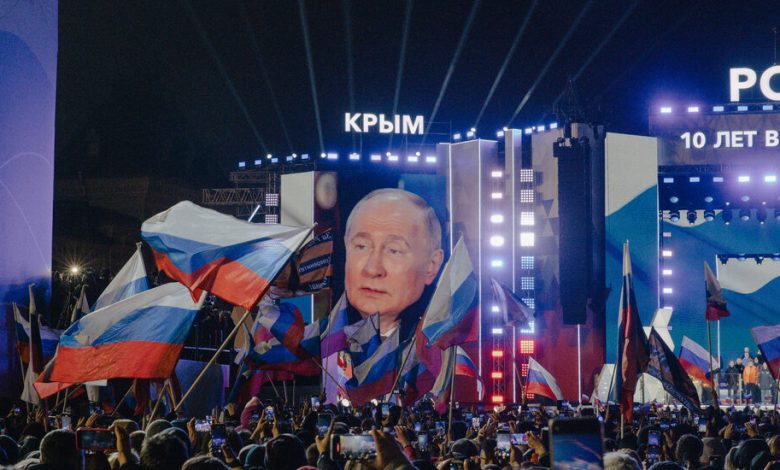Why Do Autocrats Like Putin Bother to Hold Elections?

The elections in Russia earlier this month were widely condemned as a performance that fell somewhere between tragedy and farce. Although President Vladimir Putin does have substantial public support, the vote was stage-managed to ensure that he would be “re-elected” with more than 87 percent of the vote.
And the result was fixed long before Russians even arrived at polling stations: The political opposition has been ruthlessly crushed, independent media has been silenced and public protesters have been given draconian prison sentences. Russia’s most prominent opposition politician, Aleksei Navalny, died in prison last month.
All of which raises an interesting question: Why do autocratic leaders bother holding rigged elections at all?
False results, real messages
It can be helpful to think of elections in autocratic states as an exercise in propaganda, targeted at multiple audiences. Fixing a vote can be a way for an incumbent like Putin to demonstrate his control over the levers of power: there is value in demonstrating that bureaucratic agencies, local governments, security forces and the media are loyal (or cowed) enough to participate in such a substantial, expensive and complex project.
That performance of control can also serve as a warning to the opposition and any of its potential allies, underlining the apparent futility of protest. “If you have an 87 percent victory, it’s like, ‘Do I really want to die, when this is just pointless because he’s got such an iron grip on power?’” Brian Klaas, a political scientist at University College London who coauthored the book “How to Rig an Election.” “Part of that is to basically exhibit dominance over the domestic sphere and deter opposition.”
The public might know that the election has been rigged, but not know by how much. So even a manipulated election can contribute to the image of a leader’s popularity, especially if the press is already heavily loyal, Klaas said.
